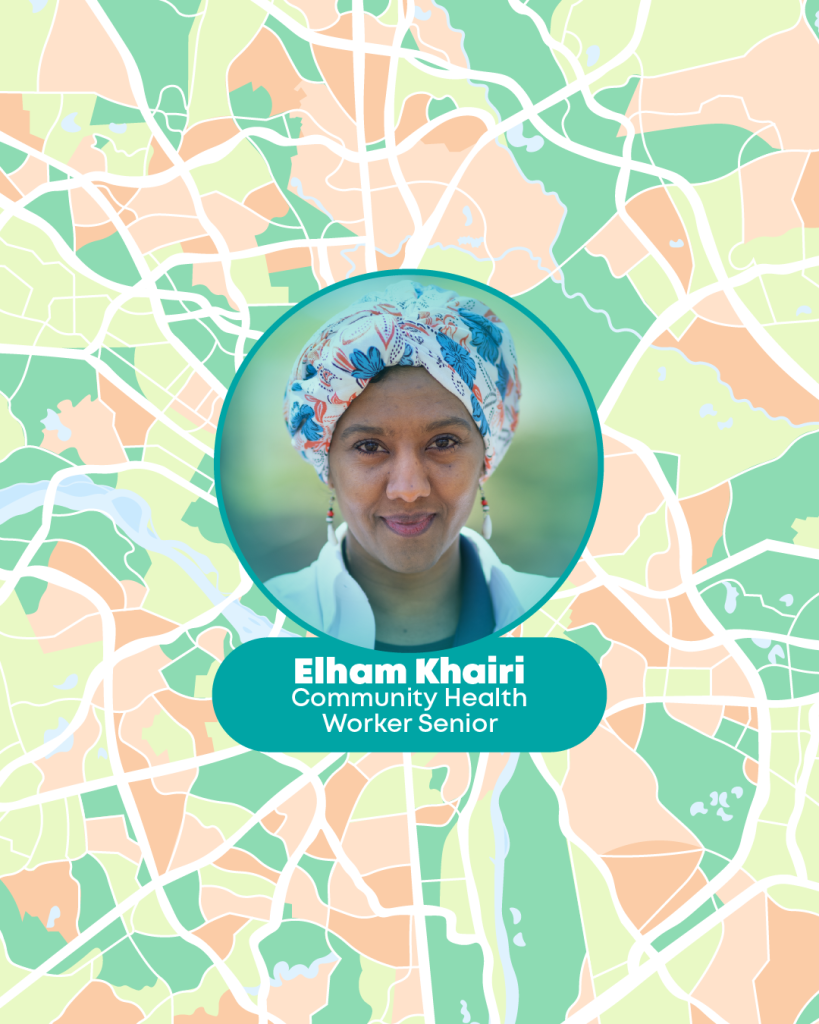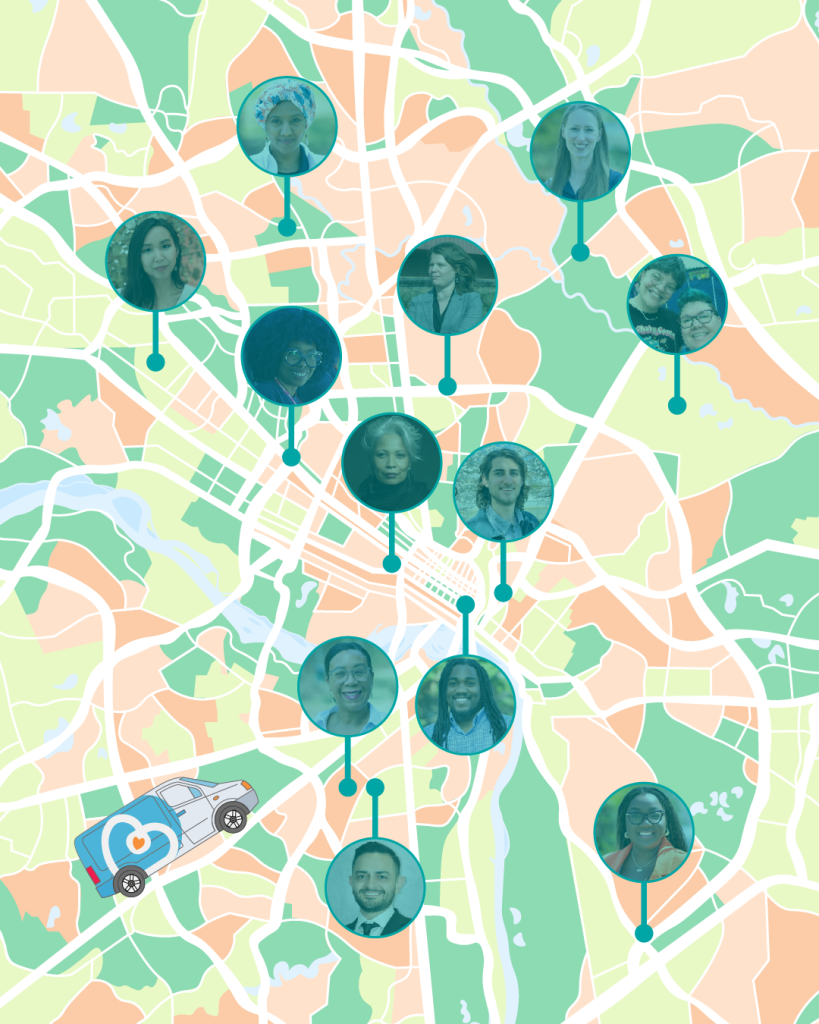Where does your public health work take you?
I have the privilege of being in people’s homes. They allow me to be in the sacred space of their home, and I am honored to work with people from all different backgrounds and walks of life. For example, I work with Egyptians, Afghans, Pakistanis, people from Mauritania, all over, whether they are immigrants, second generation immigrants, refugees, or SIV. They are trying to make a home in this country. I work with them and help them navigate their resources and make it a real home. My focus is Henrico residents, but we serve people all over the Greater Richmond area.
A high percentage of time, CHWs are in the community. If there’s an immunization event, or an educational series, or a festival or a cookout, we love to be in the community. We love to celebrate when they are celebrating and to make sure they know where to find us before they need us. We make sure that care services are accessible. Care is not just immunization appointments. It can be looking for a job, knowing which doctors accept Medicaid, learning about healthy food, or figuring out how to talk to the school. And we support and empower people to help them navigate the system by themselves. We provide tools and facilitate barriers if there are any barriers. It’s all public health!
Where did you learn about public health and serving others?
I was born a change agent. My parents and my grandma, Mama Amina, are very kind people. Mama Amina is the definition of someone who leads by kindness and not just by standing up in front of people. She is an herbalist and is known as a healer. As an indigenous Nubian person, she’s connected to the land, and she has so much knowledge about food and medicine. She knows what causes and what can heal disease. The connection to the land is also what makes her ask “where were you? What did you do? Who were you with?” She will ask all the right questions—a lot of whys—until she puts her hands on the source of things. I try to do the same! In public health, we also ask all of these questions. Growing up, I didn’t understand why these questions mattered. But after the pandemic, we know these questions—who were you with, where did you go?—are very important!
She will visit a person in need in the community, clean for them, feed them, and bring gifts for them that will meet their basic needs, and she will do that secretly and keep that person’s dignity. To provide care with dignity and kindness is the trauma-informed part of the approach. And Mama Amina practices that without the same name. Now, she doesn’t make home visits as much, but people come to her and tell her how much she helped them.
Where did you work before health?
Some immigrants and refugees will say not “my past life” but “my other life,” as if we lived twice. In Sudan and Egypt, in my other life, I was a banker as it was my job to make a living, but my heart in the community was always working in social development and peacemaking. At the time, I didn’t know the term “social determinant of health,” but that’s what I always loved to do. We worked on providing clean water, digging water wells, building clinics and schools, providing basic needs and education about the best ways for living and co-existing, and facilitating alternatives to violence training and non-violence workshops, so I believe I was somehow always in public health. Wherever you are, there is a way to serve.
Where are some places you do outreach work in Richmond and Henrico?
Whenever I am needed in the community and whenever I am welcome, I am there. We try to be in the community as much as we can. We go to a lot of weekly, monthly, and annual events. For example, I love the Henrico National Night Out cookout. We go to a lot of neighborhoods that night. And we have gone to the multicultural festival in Richmond. This year, it will be in June!
Rapid Round
Hot breakfast, cold breakfast, or no breakfast? Depends on the day ?
What’s Richmond’s best month? October
Where do you find rest or rejuvenation? In nature, anywhere near the water and arts.
What’s your walk-up song? “Vivian,” by El Noor Jailani, a famous Sudanese singer. It’s a song about a South Sudanese lady, and it is a song that calls for co-existing and peacemaking. After work, if I go for a walk or a drive, I find myself humming it. When I got my first car here, I named it Vivian!


